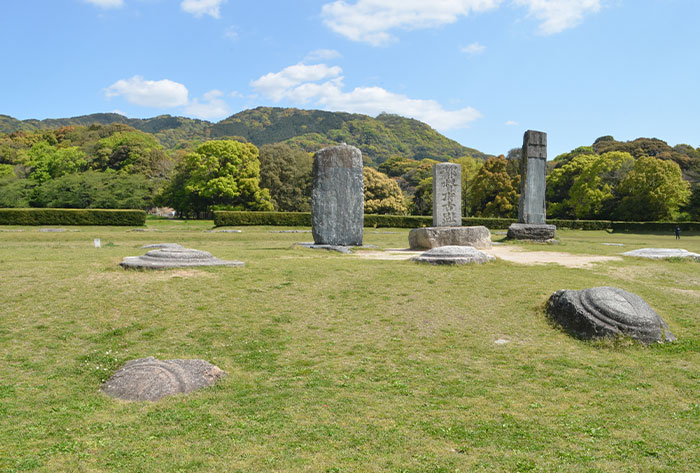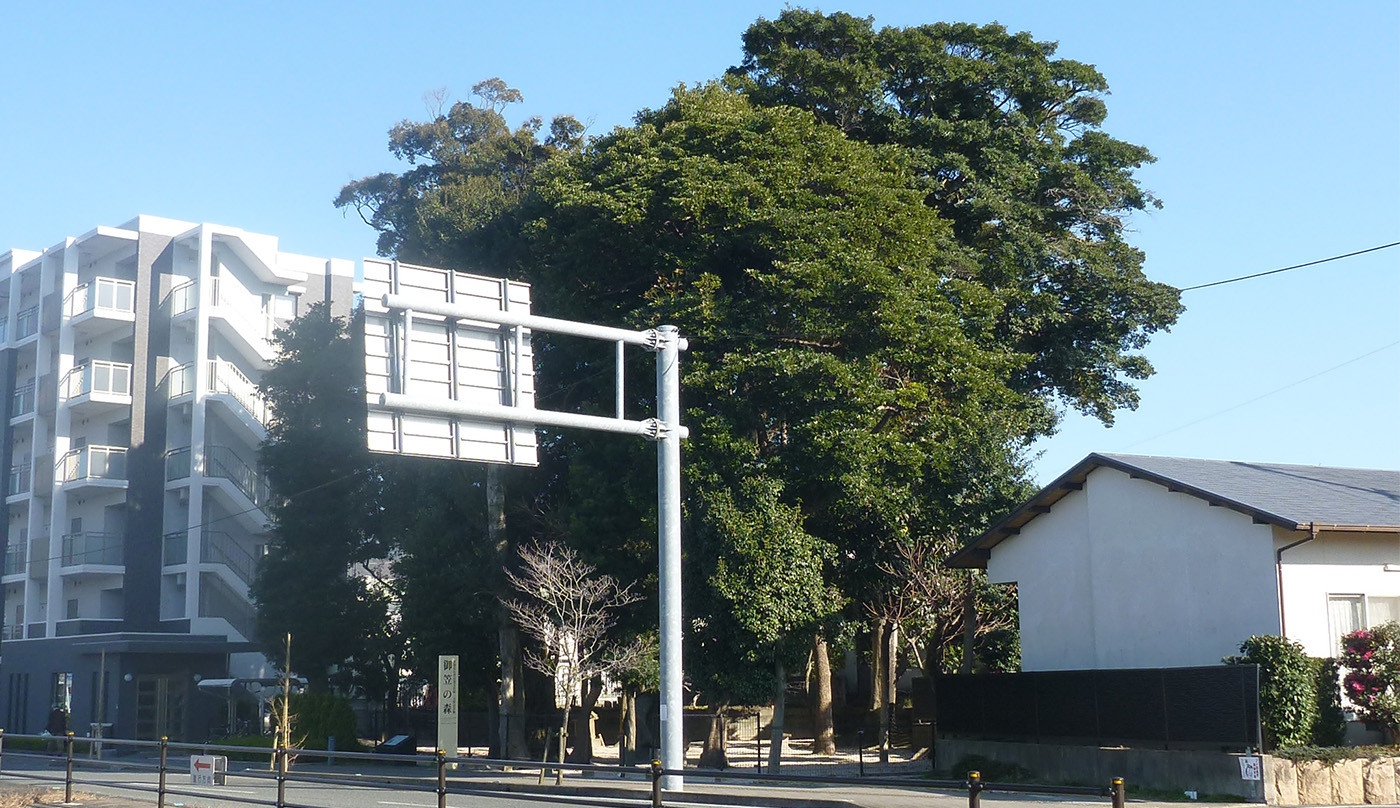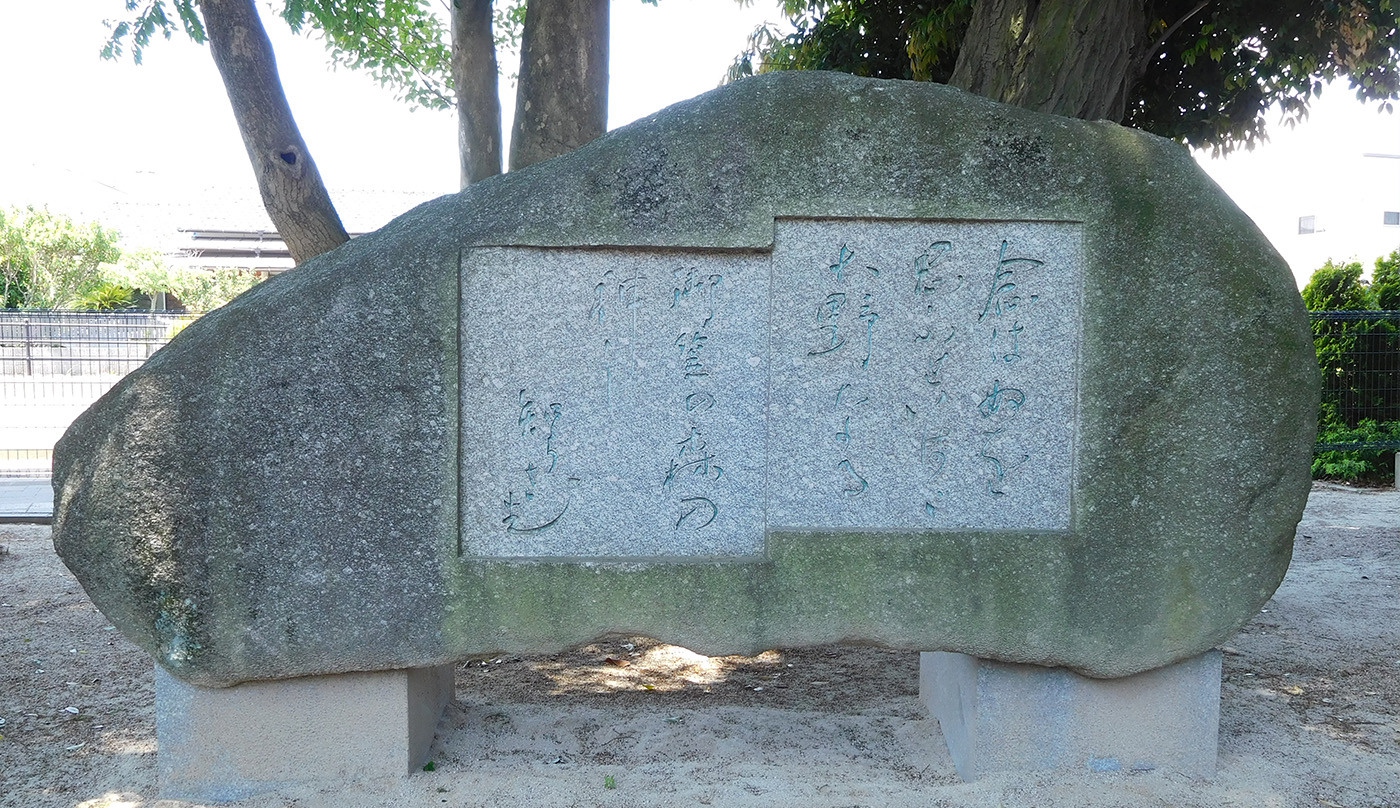
Mikasa Forest
| Location | City of Onojo |
|---|---|
| Designation | Municipally Important Tangible Cultural Property, Municipally-Designated Natural Monument |
| Emblem |  |
The following poem by Dazaifu Goverment Officer Otomo no Momoyo, who also attended “Baika no en” (The Plum Blossom Banquet), was included in the Manyoshu: “If you say you love someone when you do not, the gods of Mikasa Forest will see through you”. This is thought to be a love poem Momoyo wrote for Sakanoue no Iratsume, and this forest growing in the city and Ono-jo Fortress towering behind it retains its appearance from the days of the Man'yoshu.

A Forest of the Man'yoshu Near the Ancient Official Road
In the Nihon Shoki, Japan’s oldest history book, it is said that the name Mikasa (“conical hat”) comes from a legend in which a whirlwind blew the conical hat from Empress Jingu’s head when she was on her way to subjugate a powerful clan. Chikuzen-no-Kuni Zokufudoki (“Description of the Land of Chikuzen”), written in the Edo period, also states that the empress’s hat was blown away and got stuck on a tree in this forest, and legend has it that, since she was unable to fetch the hat herself, she decided to have the god of the forest get it for her and danced in a rice field in front of the forest for the god, after which the hat came fluttering down. While the forest is currently surrounded by residential areas, before the war it looked like a desolate island surrounded by rice paddies, and in antiquity the official road passed right next to it.

Onojo City Characters/Ono Joe
This is a small, inconspicuous forest that remains in the city. Consisting of large trees such as Castanopsis sieboldii and Nepal holly, this forest has a Man'yoshu Poetry Monument and a small shrine dedicated to Empress Jingu. With stunning views of Ono-jo Fortress beyond Mikasa Forest, you’ll want to visit this land and see the landscapes in the legend of Empress Jingu and in the poems of Otomo no Momoyo.
Access Information
Address
816-0922 2-4 Yamada, Onojo, Fukuoka
By Train
About 18 min on foot from JR Minami-Fukuoka Station


About the Western Capital
The “Western Capital”, created in Tsukushi 1300 years ago. Cultural assets speaking to the magnificence of this city of international exchange that flourished in East Asia are scattered across the cities of Chikushino, Kasuga, Onojo, Dazaifu, Nakagawa, and Umi in Fukuoka Prefecture as well as the town of Kiyama in Saga Prefecture.


